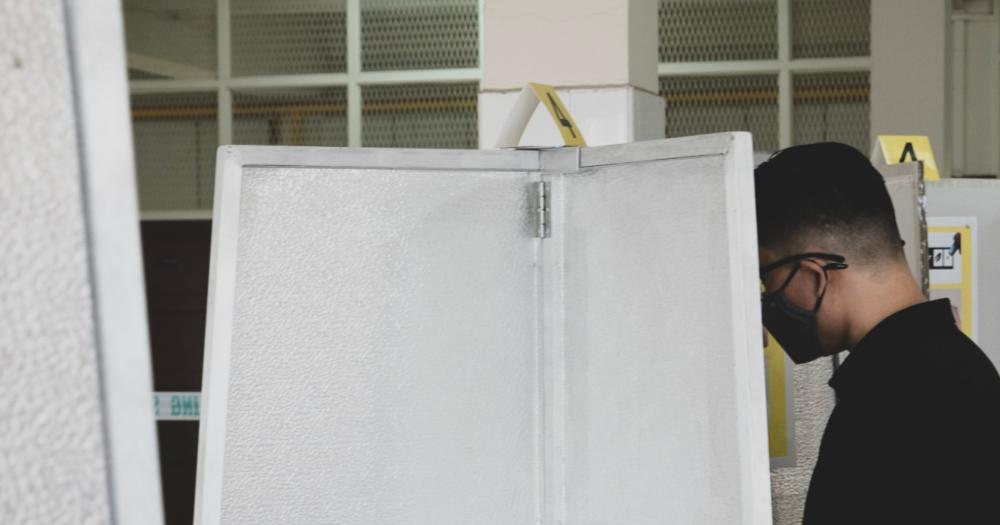Follow us on Telegram for the latest updates: https://t.me/mothershipsg
Minister for Education Chan Chun Sing said that for GE2020, "almost $8 million" of the S$30.3 million budget was spent on safe management measures as the election was held during the Covid-19 pandemic.
Chan, who is also Minister-in-charge of the Public Service, shared the figures in a written reply for the Prime Minister on May 9, in response to a Parliamentary Question on election expenditures posed by Workers' Party Member of Parliament Gerald Giam.
The written reply was posted on the Elections Department (ELD) website.
ELD is a department under the Prime Minister's Office.
S$13.5m for GE2011, S$23.2m for GE2015, and S$30.3m for GE 2020
Revealing the figures spent on holding general elections in the past, Chan said the expenditures incurred by ELD for the 2011, 2015 and 2020 General Elections were $13.5 million, $23.2 million, and $30.3 million respectively.
Chan also highlighted the factors influencing each election's expenditure.
"Across elections, expenditure will fluctuate depending on manpower, info-communications technology, transport, and other logistical needs," he said.
Chan pointed out that GE2015 was fully contested, unlike GE2011, and more election officials were deployed.
In 2011, 82 of 87 parliamentary seats were contested, with the ruling People’s Action Party (PAP) securing the remaining five seats in the uncontested Tanjong Pagar GRC by a walkover.
Chan also explained that "higher logistics costs" were incurred in GE2015 as compared to GE2011, and this was due to "election equipment such as polling booths and counting tables" being due for replacement.
Safe management measures for GE2020
ELD's plans for polling day included safety measures not observed at previous elections, such as temperature screening and contact tracing for all voters, safe distancing within and outside polling stations, as well as measures to reduce crowding.
Voters were also allocated recommended voting time-bands so they would be spread out across polling hours.
There were also special arrangements to segregate regular voters from those on Stay-Home Notice at home, those with a medical certificate for acute respiratory infection, and those having a fever of 37.5 degrees Celsius and above.
Voters also had to wear gloves, though this requirement was removed on polling day itself, after long queues formed at some polling stations in the morning.
Voting hours for GE2020 were also extended by two hours, to 10pm, which ELD said was to allow enough time for all voters to cast their votes.
Follow and listen to our podcast here
If you like what you read, follow us on Facebook, Instagram, Twitter and Telegram to get the latest updates.
